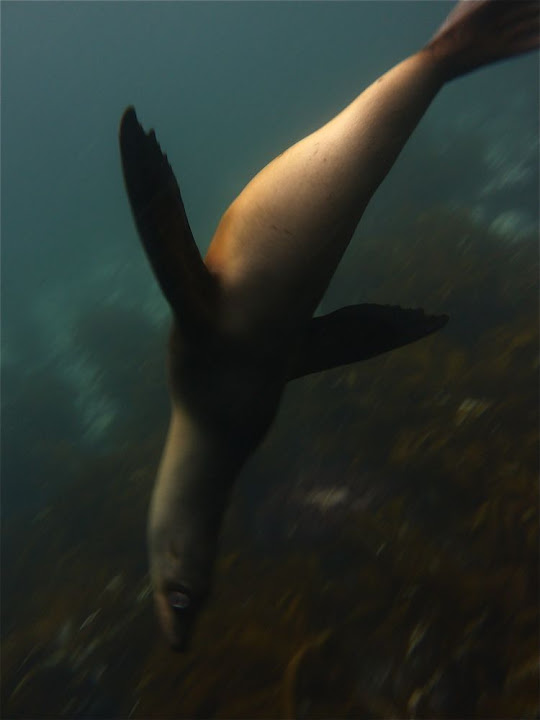cold
You don a full body wetsuit, the thickest you can find. A hood, thick neoprene gloves, booties. You go in, shiver for half an hour and come back up to pour hot water into your suit to warm yourself up. If you see more then two body-lengths you consider the visibility outstanding.
The unwieldy wetsuit constraints your movements, cold water suddenly and inexplicably finds its way into your booties, air bubbles slowly build up under your hood and then escape with sudden swish triggering your panic response. The Caribbean bliss of the calm underwater world inevitably becomes just a remote dream with preciously few tangible links to frigid reality.
Locals extoll virtues of California diving. I grant you it is an adventure. I agree it makes you a better diver. I concede the life forms are spectacular. I even admit it is not that cold. But when I start to hear: I’d rather dive here than in the Caribbean and Diving in warm blue water is boring, I know I am faced with a serious case of The lady doth protest too much, methinks. Also the proverbial lady, regardless of her actual gender, seems to prefer diving in dry suit, which probably changes her outlook on the whole temperature thing. Nonetheless, I am grateful they are enthusiastic to dive here and share their passion with me for a brief moment before I head back into those boring dives in warm waters of great visibility.
We have started our California diving with a beach dive in La Jolla Shores. Since this was our first time in a new location, not to mention the first in the cold water we splurged on a guide. That was money well spent: we learned how to enter stingray-infested surf. Follow me and shuffle your feet, said Michel, the guide. Between the dives he told us about his very own stingray bite. This is not some remote hazard like decompression sickness: on a good (or should I say bad) summer day stingray related accidents on La Jolla beaches go well into tens. By the time you manage to cross the surf zone and swim to the actual dive site cold water cedes to be your biggest concern.
Next, we took a boat to Coronado Islands. It’s in Mexico but you don’t really cross the border. Occasionally Mexican Navy boards dive boats to remind divers and operators that Mexico is a different country. We didn’t encounter sailors, just curious sea lions. Lean and wide-eyed, swimming toward divers and making tight U-turns in the last possible moment.
And finally we braved the wrecks for the satisfaction of doing the challenging dive. Also because it was the only dive boat we could find on a short notice.
As chilly as they felt, our dives technically did not qualify as cold water. We stayed in in 50°F - 60°F (10°C - 15°C) range. Despite of that, I am happy to have some cold water experience. I might not be ready for Murmansk, where my friend Irina goes for her cold water dives, but Baltic and its numerous wrecks increasingly look like a perfectly reasonable option.
